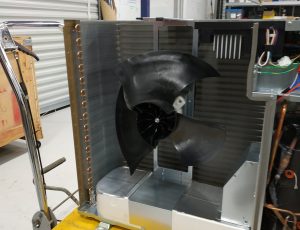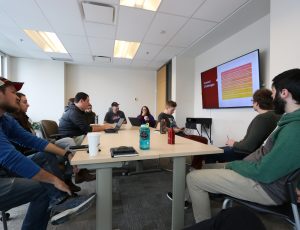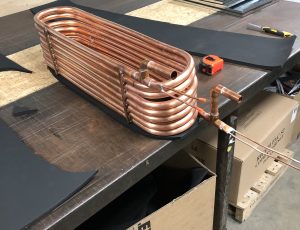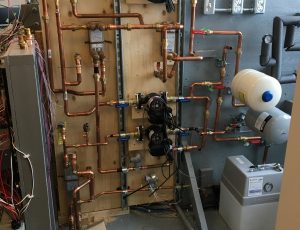Researcher: Kayla Lewry
The goal of this research is to study a commercially available, retrofitted, CO2 heat pump water heater (HPWH) SANCO2 from Sanden. More specifically, the basic control logic of the heat pump and its performance over varying water and source temperatures. In order to move away from traditional refrigerants, testing must be done to learn about the properties of CO2 as a natural refrigerant.
This project is conducted in partnership with Ecologix, an industry partner of the Solar Energy Systems Laboratory.
The experimental process begins by numerically modelling the heat pump water heater (HPWH) and correctly predicting the state points based on varying ambient and water temperatures. The model is then used to try out different control strategies to determine what is currently being used for the Sanden unit.
The model will then be converted to a water source configuration, with optimized controls.
Future work with this HPWH involves experimental testing in the SESL facilities. It is expected to be tested over various water temperatures and flow rates to better understand how different conditions will affect the performance of the heat pump.
The effectiveness of a heat pump using natural refrigerants is relevant to the advancement in home heating systems. Specifically to the elimination of harmful alternatives such as Chlorofluorocarbons (CFC’s) often found in common residential heating/cooling appliances. Typical refrigerating systems lose approximately 25 % of its refrigerant to the atmosphere. If the retrofitted pump is able to preform efficiently for both space and water heating, the integration of this apparatus can be easily used in a variety of applications concerning residential heating and cooling, creating a shift in energy use through Canada.



